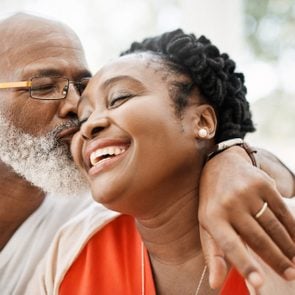What Is a Relationship Coach? How to Know if You Need One
Updated: Dec. 03, 2020
These problem-solvers can help you define and reach your partnership goals. Relationship coaches empower you while attaining a deeper connection.
Relationship coach vs. therapist
When couples come to Lisa Concepcion, a Florida-based certified professional life coach who specializes in relationships, they sometimes say things like, “We’ve been married for 15 years and our whole life revolves around our children. We love each other. But we’re so exhausted that we don’t know who we are as a couple anymore.”
Or maybe they’re not married, but they have relationship issues they’re looking to sort out. “For singles, it’s everything from wanting to date with power, purpose, and confidence to getting over breakups to wanting an exit strategy to leave a relationship,” she says.
And while all of the above may sound like issues therapists deal with all the time, Concepcion says there’s one crucial difference: Relationship coaches focus on how to achieve their goals, not why. Read on to see what coaches do—and how to find the right one for you.
Coaching focuses on your aims
When should you turn to a coach rather than a counselor? “Coaching is very goal-oriented. And my job as your coach is to help you clarify what those goals are and move forward towards creating them,” says Wendy Lyon, PhD, a relationship coach and psychologist in Novato, California.
“Whereas with therapy, often the focus is on understanding the past—learning about patterns and behaviors of what happened and why,” she adds. “I want to understand the past, but the main focus is on moving forward.”
There’s another difference, too, says Joseph Cilona, a psychologist in New York City, who also does coaching. “Coaching does not involve addressing any formal clinical issues or diagnoses,” he says. “Coaching may focus on overcoming certain challenges or meeting certain goals. But mental health issues are not the focus.”
So if you find that your relationship is making you seriously depressed and your partner isn’t sympathetic, the two of you might head to couples therapy. (See if you have these signs of depression.) But if the two of you want to stop arguing over when to start a family, then a coach might be the better fit.
A good coach has credentials
Coaching credentials can vary wildly. Some coaching certificates are doled out after a weekend course, while others are more intensive and can take years to complete, says Cilona. Even scarier: “Titles like relationship coach, dating coach, and life coach are not regulated in any way legally or through any official licensure or governing body,” he explains. “So anyone can market themselves as a relationship or other kind of coach without any training, certification, or even a high school diploma.”
When you’re interviewing potential coaches, ask them where they got their training (and do some sleuthing yourself). “It almost doesn’t matter what it is, as long as it has credibility,” says David Steele, a marriage therapist-turned-relationship coach and founder of the Relationship Coaching Institute. “So there are certified coaches from Board Certified Coach and International Coaching Federation, and there are coaches who graduate from university programs.”
Also remember that psychologists or psychotherapists can also offer coaching services as well as therapy, says Cilona. So you may want to explore that route, too. (Don’t want to leave the house? Find out how you can find a telemedicine therapist.)

How relationship coaching works
Coaching focuses on transforming problems into goals, says Steele. “Say a couple is arguing about which family to go to for Thanksgiving. They come to the coach and say, ‘We’re having an argument and we want your help. How should we work this out?’ ” he explains.
“A coach will help you transform that problem into a more immediate goal that will solve your problem, but also a big-picture goal. In coaching, we call that your vision. So your vision may be what you really want your relationship to look like five, 10, and 20 years down the road. Then we break that up into smaller goals and develop a plan,” Steele says.
Think of these shorter-term targets as building blocks that could include a better way of resolving conflicts, making decisions, or even creating a more satisfying sex life for both of you, Steele explains. Then you put the bricks together to achieve your bigger vision, which might be a relationship that’s united, respectful, and loving.
“When you start asking the big-picture questions and start designing your life for the long term, then it works so much better than reacting to a short-term problem,” says Steele. And that’s where a coach can be helpful.
Coaching shouldn’t be prescriptive
Some people want their coaches to tell them what to do or give them advice. But a good relationship coach will empower you to come up with solutions and will be more of a guide, says Lyon.
In fact, if a coach seems too advice-oriented and is telling you what you should do that’s a big red flag, says Steele. “A good coach will ask questions, and will find out who you are, what you want and need, and what works for you,” he says.
Lynya Floyd, a life coach in New York City who often helps her clients work through relationship issues, agrees. “I would never tell anyone what to do on a coaching call,” she says. “This is about showing people what their options are, having them make the decision of what works best for them. And having them try things in a safe space and come back and talk about what happened.”
Your coach will come up with a 12-week program
Most coaches will do once-a-week, hour-long meetings, with support—via texts or phone calls—in between those weekly sessions. The initial session is usually 90 minutes long to allow the coach to ask you questions. Other coaches, like Floyd, will offer free discovery calls so that you can get to know each other, as well as a long intake form before the first official session so you can think about the issues or areas you want to explore.
During those 12 weeks there may be homework, like exercises to help you speak to your partner, says Lyon. “With couples, there are often issues with feeling like they’re not understanding each other. So I might give them a communication exercise where they have to be more deliberate with how they talk to each other,” she says. Such exercises involve “learning how to take turns and do some deep listening without judgment, without jumping to conclusions, or jumping in defensively.”
(Get a head start on your communication skills by reading these tips for making your arguments more productive.)
You should be able to see breakthroughs
Coaching is all about working toward goals—whether it’s a large vision with lots of smaller goals in between or just one target you want to nail.
“We decide what the client’s goal is by the second session so it’s very easy to measure progress,” says Floyd. “If you decide you’d like to go on four dates in the next two months, then we know what you need to do to hit that goal each week. If you decide that you want to stop lashing out at your partner in the next two months, we can quantify how many times you’ve been doing it and how often you did it after a month of working together.”
You can use a coach for any type of relationship
Whether you’ve been married for 25 years or just got engaged, a relationship coach can help you sort through whatever needs sorting. Concepcion offers a premarital prep that allows her clients to hash out communication issues, chores, and conversations about money. “We look at all these different buckets that are of importance to them and we help them to start functioning like a real legit married team,” she explains.
Sometimes people head to a coach during a crisis, what Concepcion calls crisis coaching. Say, for instance, one partner discovered the other is having an affair (or is worried that they’re having an affair) and doesn’t know how to approach the topic.
Or it could be more proactive than that. “Coaching can be for couples in distress, but it can also be for couples who just want a deeper connection, want to rejuvenate their romance and have more intimacy,” says Lyon. “They don’t have to be in dire straits to come in for support.”
You may also be having relationship issues with your siblings or friends, and that could be a reason to seek a coach, too—especially if you suspect one of your friendships is toxic.
How to find a relationship coach
Besides getting referrals from friends and family, experts suggest the following:
Get a third-party stamp of approval
Go to the International Coaching Federation’s coach finder page and you can find coaches with different levels of certification, from associate to master, suggests Concepcion. Or Google “marriage coach IPEC,” to find a relationship coach, she says.
Get as much intel as you can
“You should be able to find lots of information online about them as a coach,” says Steele. “You should find articles and testimonials, and be able to see and confirm where they got their training, and that they have credentialing that is credible.”
To see if a coach is the right fit, it pays to check out their social media, their website, and their YouTube channel, if they have one, says Concepcion. “Poke around and see how they communicate—is their style a match for yours? Do the due diligence of reading if they write blog posts. You really have to dive in and see who this person is, what do they really know, and what can they help with.”
Take advantage of the discovery calls
Many coaches offer free discovery calls, whether they’re 15 minutes long or 90, says Floyd, who offers hour-long discovery calls so clients can explore what her practice is like. “At the beginning, I’m asking them some questions about themselves, but I’m also trying to get a sense of who they are. What are they looking for from coaching? At the end of my discovery calls, I’ll give them a taste of what the coaching experience would feel like with me,” she explains.
“It’s like an appetizer, right? If that was good, you’re really going to love the main course,” says Floyd. But don’t feel pressured to sign on with the coach at the end of the conversation. “I find that by the end of the call, people know if they’re in or not. You’ll know if you could relate to this person.”
Ask the right questions
It’s important to feel that your coach has experience working with couples (or singles) like you. So ask potential candidates what inspired them to become coaches, Concepcion suggests. “Because you really want to hire somebody who’s been through some stuff, preferably the stuff that you’re going to be coached on by them.”
She also advises asking what the process is like. “You want to be really clear on the level of commitment required, the likelihood of a result, and what is involved,” she explains. So ask what kind of time you’ll need to invest in this program—how many hours outside the weekly sessions will you have to spend reading or doing other types of homework.
Ask about the coach’s other programs
Coaching isn’t cheap, so if the coach’s fee floors you, ask about other types of sessions, suggests Concepcion. Lyon has group classes, which are less expensive. “In group programs, you might not get as much individual attention, but you can still get some good information and help towards your relationship goals,” she says. “And usually those are more structured, too.” Concepcion has done three 90-minute intensive sessions instead of her 12-week program for couples or individuals.
“Aside from training, education, experience, and approach, be sure to remember that good results often also require a good fit between client and coach,” says Cilona. So take the time to look for someone you both click with—and then put in the work to make your relationship blossom.



